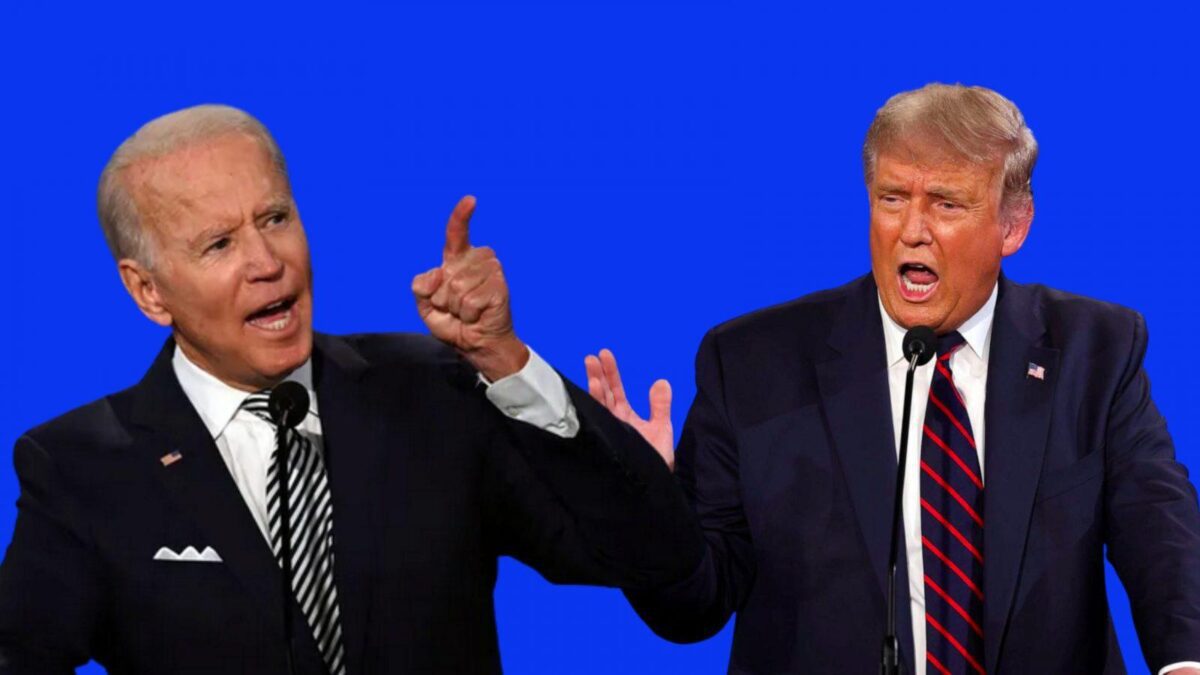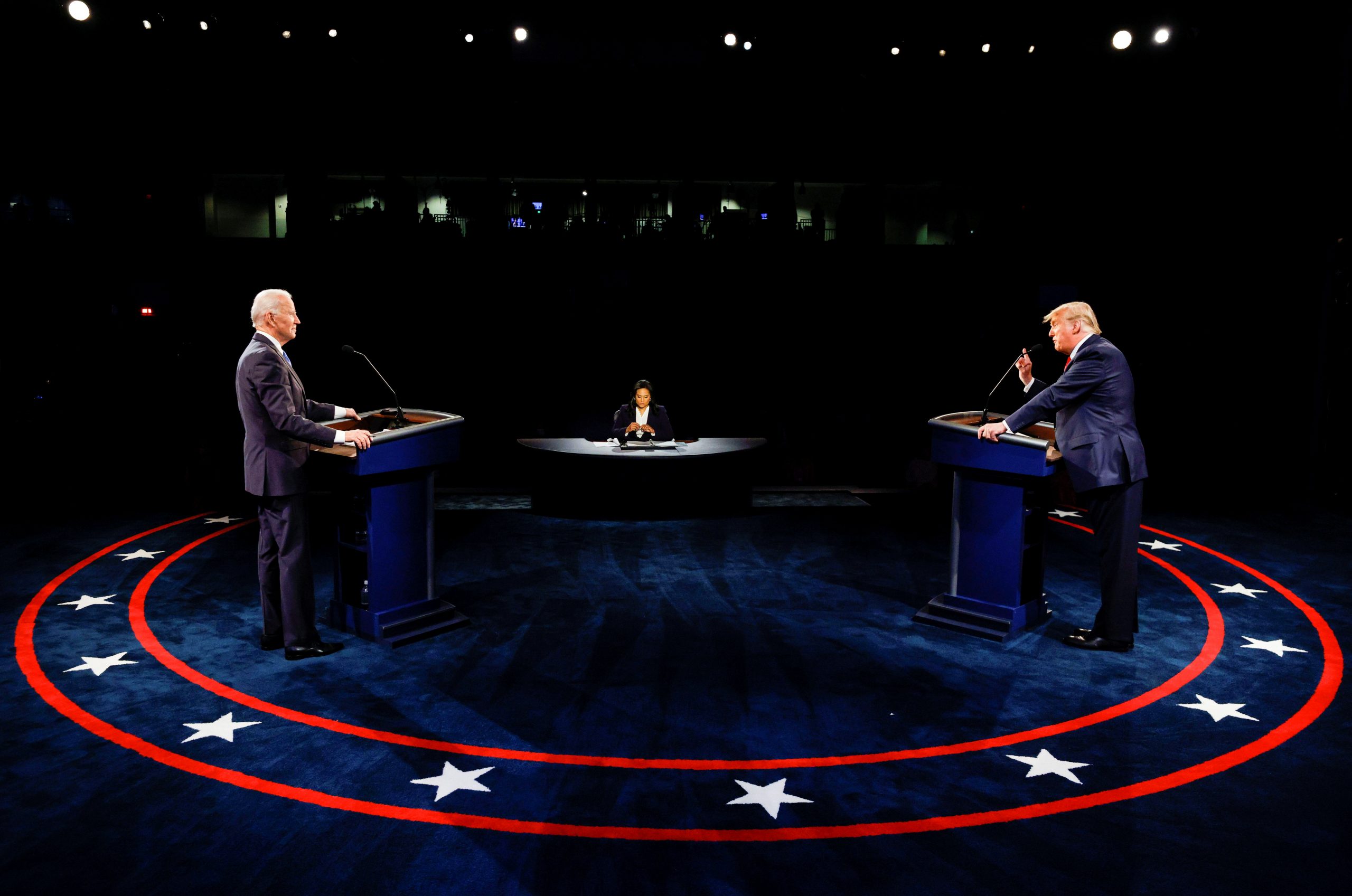The final presidential debate is one of the most critical moments in the political calendar, shaping public opinion and influencing voter decisions. It serves as a platform for candidates to present their policies, leadership qualities, and vision for the future. As the culmination of a series of debates, this event holds immense significance in determining the trajectory of the nation's leadership.
This article delves into the intricacies of the final presidential debate, examining its structure, key moments, and the impact it has on the electorate. By analyzing the strategies employed by the candidates, we aim to provide a thorough understanding of how these debates influence the democratic process.
Whether you are a political enthusiast or simply someone interested in understanding the dynamics of political discourse, this article offers valuable insights into the final presidential debate. Let's explore the nuances of this pivotal event and its implications for the nation's future.
Read also:Exploring The Fascinating World Of Benjamin Salisburys Influence
Understanding the Importance of the Final Presidential Debate
Why the Final Debate Matters
The final presidential debate is often seen as the last opportunity for candidates to sway undecided voters and reinforce their positions among supporters. According to a study by the Pew Research Center, approximately 40 million Americans tune in to watch these debates, making them a crucial component of the election process.
During this debate, candidates are expected to address pressing national issues, showcase their problem-solving abilities, and demonstrate their readiness to lead the nation. The stakes are high, and the performance can significantly impact public perception.
Key Objectives of the Debate
The primary objectives of the final presidential debate include:
- Clarifying candidates' positions on key policy issues.
- Highlighting differences in leadership styles and governance philosophies.
- Engaging in constructive dialogue to address voter concerns.
- Providing a platform for candidates to articulate their vision for the future.
These objectives underscore the importance of the debate as a tool for democratic engagement and voter education.
Structure and Format of the Final Presidential Debate
Traditional Debate Format
Traditionally, the final presidential debate follows a structured format, with moderators posing questions to the candidates on predetermined topics. The Commission on Presidential Debates (CPD) oversees the organization and execution of these events, ensuring fairness and impartiality.
In recent years, debates have incorporated town hall-style formats, allowing audience members to ask questions directly to the candidates. This approach fosters a more interactive and engaging experience for viewers.
Read also:Unveiling The Heartbeat Of Santa Clarita Your Ultimate Local News Guide
Role of Moderators
Moderators play a pivotal role in maintaining the flow of the debate and ensuring that candidates adhere to time limits. They are responsible for facilitating discussions, challenging candidates on their responses, and maintaining a neutral stance throughout the event.
Notable moderators such as Lester Holt, Chris Wallace, and Martha Raddatz have been praised for their ability to balance objectivity with assertiveness, creating a conducive environment for meaningful dialogue.
Key Topics in the Final Presidential Debate
Economic Policy
Economic policy remains a central focus in the final presidential debate, with candidates outlining their strategies for job creation, fiscal responsibility, and economic growth. According to the Bureau of Labor Statistics, unemployment rates and inflation figures are key indicators of economic health, often influencing voter sentiment.
Candidates are expected to provide detailed plans for addressing economic challenges, including proposals for tax reform, infrastructure investment, and support for small businesses.
Healthcare Reform
Healthcare reform continues to be a contentious issue in the final presidential debate, with candidates presenting contrasting visions for the future of healthcare in America. The Affordable Care Act (ACA) and its potential repeal or expansion are often central to these discussions.
Data from the Centers for Disease Control and Prevention (CDC) highlights the importance of accessible and affordable healthcare, making it a priority for voters across the political spectrum.
Strategies Employed by Candidates
Message Delivery
Effective message delivery is crucial for candidates in the final presidential debate. They must convey their ideas clearly and persuasively, using relatable language and compelling narratives to resonate with voters.
Non-verbal communication, such as body language and tone of voice, also plays a significant role in shaping public perception. Candidates are coached to maintain composure and project confidence during the debate.
Counter-arguments and Rebuttals
Counter-arguments and rebuttals are essential components of the debate, allowing candidates to challenge their opponents' positions and defend their own. This exchange of ideas fosters a deeper understanding of the issues at hand and provides voters with valuable insights into the candidates' critical thinking abilities.
Research from political analysts suggests that well-crafted rebuttals can significantly influence voter opinions, underscoring the importance of preparation and strategic thinking.
Impact on Voter Perception
Shaping Public Opinion
The final presidential debate has a profound impact on public opinion, with many voters forming or solidifying their views based on the candidates' performances. Polling data from Gallup and other reputable sources consistently show fluctuations in candidate approval ratings following these events.
Voters often evaluate candidates based on their ability to articulate their positions, respond to challenges, and connect with the audience on an emotional level. These factors contribute to the overall perception of credibility and trustworthiness.
Engaging Undecided Voters
Engaging undecided voters is a primary goal of the final presidential debate, as these individuals can tip the balance in a closely contested election. Candidates must tailor their messages to appeal to a broad spectrum of voters, addressing their concerns and offering solutions to their problems.
Studies indicate that undecided voters are more likely to be influenced by emotional appeals and personal stories, making them a critical demographic in the electoral landscape.
Historical Context of Final Presidential Debates
Notable Moments in Past Debates
Throughout history, the final presidential debates have been marked by memorable moments that have shaped the course of elections. From John F. Kennedy's charismatic performance in 1960 to Ronald Reagan's "there you go again" quip in 1980, these events have left lasting impressions on the American public.
More recent debates have seen candidates employing innovative strategies, such as leveraging social media to reach younger audiences and addressing emerging issues like climate change and cybersecurity.
Lessons from Previous Debates
Previous debates offer valuable lessons for candidates and voters alike, highlighting the importance of preparation, adaptability, and authenticity. Candidates who have excelled in these areas have often emerged victorious in the electoral process.
Historical analysis of past debates reveals patterns in voter behavior and media coverage, providing insights into the factors that contribute to successful campaign strategies.
Media Coverage and Public Reaction
Role of the Media
The media plays a crucial role in shaping the narrative around the final presidential debate, influencing public perception and amplifying key moments. Television networks, online platforms, and social media channels provide extensive coverage of the event, offering analysis, commentary, and real-time reactions.
Fact-checking organizations such as Politifact and Snopes play an important role in verifying the accuracy of candidates' statements, ensuring that voters have access to reliable information.
Audience Engagement
Audience engagement is a key metric in evaluating the success of the final presidential debate. Social media platforms like Twitter and Facebook allow viewers to participate in discussions, share their opinions, and engage with others in real-time.
Analytics from these platforms provide valuable insights into audience sentiment and trending topics, helping campaigns tailor their strategies to resonate with specific demographics.
Future Implications for Democratic Processes
Evolution of Debate Formats
As technology continues to evolve, so too will the formats of presidential debates. Virtual reality, augmented reality, and other innovative tools may enhance the viewing experience, providing new opportunities for engagement and interaction.
These advancements could democratize access to debates, allowing a broader audience to participate and contribute to the democratic process.
Challenges and Opportunities
While the final presidential debate presents numerous opportunities for candidates to connect with voters, it also poses challenges in terms of maintaining fairness, accuracy, and transparency. Ensuring that debates remain a platform for constructive dialogue and informed decision-making is essential for the health of democracy.
Future debates must prioritize inclusivity, diversity, and accessibility, ensuring that all voices are heard and valued in the electoral process.
Conclusion
In conclusion, the final presidential debate serves as a critical juncture in the democratic process, offering candidates the opportunity to articulate their visions for the future and engage with voters on key issues. By examining the structure, strategies, and impact of these debates, we gain a deeper understanding of their significance in shaping public opinion and influencing election outcomes.
We invite you to share your thoughts and insights in the comments section below. Your feedback is invaluable in fostering a vibrant dialogue around the democratic process. Additionally, explore our other articles for more in-depth analysis of political topics and trends.
Table of Contents
- Understanding the Importance of the Final Presidential Debate
- Structure and Format of the Final Presidential Debate
- Key Topics in the Final Presidential Debate
- Strategies Employed by Candidates
- Impact on Voter Perception
- Historical Context of Final Presidential Debates
- Media Coverage and Public Reaction
- Future Implications for Democratic Processes
- Conclusion


